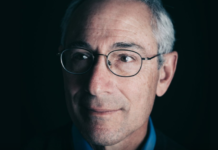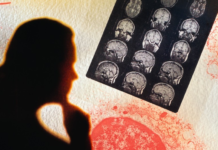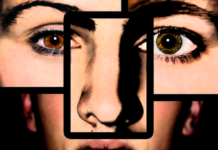Childhood Trauma and Auditory Verbal Hallucinations
Researchers in the Netherlands compared childhood trauma and auditory verbal hallucinations (AVH) in 127 non-psychotic individuals with frequent AVH, healthy controls, and 100 psychotic...
“Medicating a Prophet”
In the New York Times Sunday Review, Irene Hurford, a psychiatrist, reflects on the ethics of forced treatment for psychosis. “As doctors,” she writes,...
Mad Pride: Making a Truce With the Voices in Your Head
In this piece for Vice, Tess McClure describes New Zealand's Mad Pride movement, a movement that seeks to destigmatize, normalize, and celebrate experiences of voice-hearing...
Not Everyone Wants to Silence the Voices in Their Heads
From Science of Us: There seems to be a growing interest in the concept of healthy voice-hearing. The idea that hearing voices may not be...
Sunday Morning Channel: “Has Psychiatry Silenced God?”
-The Edinburgh International Book Festival hosted a discussion exploring religious beliefs, creative inspiration, and whether hearing "the voice of God" should be regarded as a symptom of mental illness.
The Smartphone Psychiatrist
In this piece for The Atlantic, David Dobbs delves into the life of former NIMH director Thomas Insel, his critiques of research within the field of...
“The Rise and Fall of the Blockbuster Antipsychotic Seroquel”
Martha Rosenberg highlights how the popular antipsychotic Seroquel is a perfect example of how direct-to-consumer advertising made billion dollar blockbuster drugs possible before side-effects...
Adverse Childhood Events Contribute Significantly to Most Mental Health Problems
John Read and Richard Bentall write in the British Journal of Psychiatry about the growing understanding and acceptance of the significant role adverse childhood...
RAISE Study Out Of Sync With Media Reports
Writing on his 1 Boring Old Man blog, Dr. Mickey Nardo reflects on the media frenzy around the RAISE study and asks why the prescription data has not been released. He adds skepticism about the political motives of the potentially overblown results, which he sees as a clear push for increased mental health funding.
Hearing Voices, Living Fully: Living with the Voices in My Head
My memoir, Hearing Voices, Living Fully: Living with the Voices in My Head, chronicles my journey through depression, psychosis, and an unmedicated recovery, and describes how I learned to challenge my demons and negotiate the conditions that allowed me to regain control over my mind and my life. Although I thought my story was very unusual, I thought it possible that many who have manifested the symptoms associated with schizophrenia could achieve a greater degree of recovery than is currently the norm. When I became involved with the Hearing Voices Network, I learned that my experience is not uncommon and that there are literally millions of people in the world who are living full lives, even while hearing voices.
Mental Health Nurses Do Not Routinely Assess for Effects of Antipsychotic Medications
Researchers believe that side-effect monitoring is critical because of the increase in the use of antipsychotics
Auditory Hallucinations – Expectation, Interpretation, and Emotion
Researchers in Australia, the U.K., the Netherlands, Canada and Belgium reviewed research on auditory hallucinations (AH) in schizophrenia as well other clinical and nonclinical...
Hearing Voices Researched at Edinburgh Book Festival
Researchers from Durham University's Hearing the Voice project are attending the Edinburgh International Book Festival through August as part of a study, asking both...
“How I Cope With the Three Unwanted Voices That Live Inside my Head”
What now? I’m frightened of being labelled mentally ill.
The Psychiatrist who Wanted to Make Madness Normal
From BBC: RD Laing, Scotland's most famous psychiatrist who has been revered as the "high priest of anti-psychiatry," is the subject of a new film called Mad...
How my Experience With Psychiatry Traumatized me
In this piece for Youth Ki Awaaz, Nibu Augustine recounts his traumatic experiences with psychiatry and the mental health system, including forced drugging and adverse...
A Life Hearing Voices: How I Manage Auditory Hallucinations
Shanika Ranasinghe speaks to ELLE about her experience of hearing voices, the stigma attached to voice-hearing and the tools that have helped her cope, such...
Reading the Bible Through Neuroscience
In this interview for The Atlantic, James Kugel speculates on the minds and experiences of ancient prophets through a neuroscientific lens, exploring how biblical people's sense of...
“25 Years of Madness and Modernism”: A Review
In this piece for the Centre for Medical Humanities, James Whitehead reflects on the 25th anniversary celebration of the publication of Louis Sass's Madness and Modernism.
"A...
Voices, Then & Now
As we approach world hearing voices day 2013 Karen and I are in Canada. We have just enjoyed running a preconference workshop for about 100 people in Winnipeg. I am sitting in my room before breakfast writing this piece and as I sit I am thinking back twenty-three years ago; I am in a psych unit in Manchester and I have a new support worker called Lindsay. By then I had been a psych patient for almost ten years and was fast approaching spending the rest of my life in the system. My support worker had convinced me to go to a new group that was starting in Manchester called a hearing voices group.
“Auditory Hallucinations: Debunking the Myth of Language Supremacy”
In Schizophrenia Bulletin, an Australian and a French researcher argue that the Hearing Voices Movement and similar groups are often misleading the public and...
Schizophrenia’s Tangled Roots
From Sapiens: Researchers are increasingly recognizing the role that social and environmental factors, including childhood abuse, stressful events, and poverty, play in the development of...
“The Whisper Whisperers”
-Newsweek visits the Hearing Voices Network.
“Social Factors Influence Schizophrenia?”
PsychCentral covers new research linking social deprivation, population density and inequality with higher rates of psychotic symptoms and diagnoses for schizophrenia. “This is important because other research has shown that many health and social outcomes also tend to be optimal when societies are more equal.”
The People with Psychosis Embracing the Voices They Hear
In this piece for Vice, Laetitia Laubscher discusses the Hearing Voices Network, a non-medical approach to hearing voices and experiencing extreme states.
"...a key goal...






















